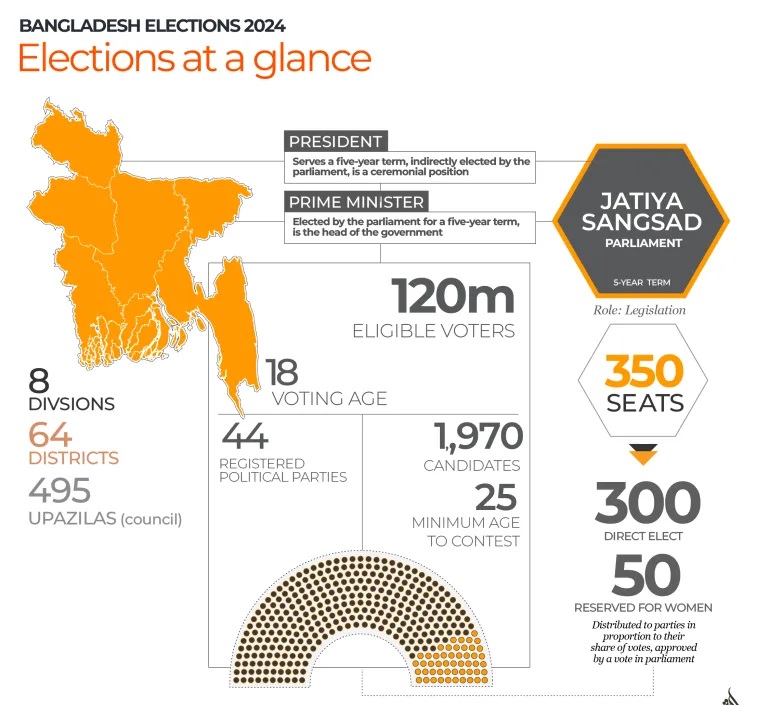Breaking News
Bangladesh Election 2024: Sheikh Hasina Wins Historic Fourth Term

The results of the Bangladesh election are in, and they confirm what many had expected: Prime Minister Sheikh Hasina has secured a fourth consecutive term in office, with her ruling Awami League party winning a landslide victory . However, the legitimacy of the election is in doubt, as the BNP and its allies boycotted the vote, citing widespread irregularities, intimidation and violence. The turnout was also low, at around 40%, indicating a lack of public confidence in the electoral process.
Hasina, who is 76 years old and has been in power since 2009, is one of the most influential and longest-serving leaders in Bangladesh’s history. She has overseen rapid economic growth, improved social indicators and a crackdown on Islamist militancy. But she has also faced criticism for her authoritarian tendencies, human rights violations and corruption allegations.
The Bangladesh election has exposed the deep divisions and distrust that plague the country’s politics. It has also raised questions about the future of democracy and development in one of Asia’s most populous and dynamic nations. Hasina faces the challenge of addressing these issues while maintaining her grip on power and delivering on her promises.
- Bangladesh counts votes in low-turnout election boycotted by opposition Al Jazeera English
- Bangladesh election: How credible will result be after BNP boycott? | DW News DW News
- Voters cast ballots in Bangladesh election marred by violence and opposition boycott NPR
- In Bangladesh, a Raging ‘One-Woman’ Show Against US’ Selective Strategy The Quint
- Sunday View: The Best Weekend Opinion Reads, Curated Just for You The Quint
